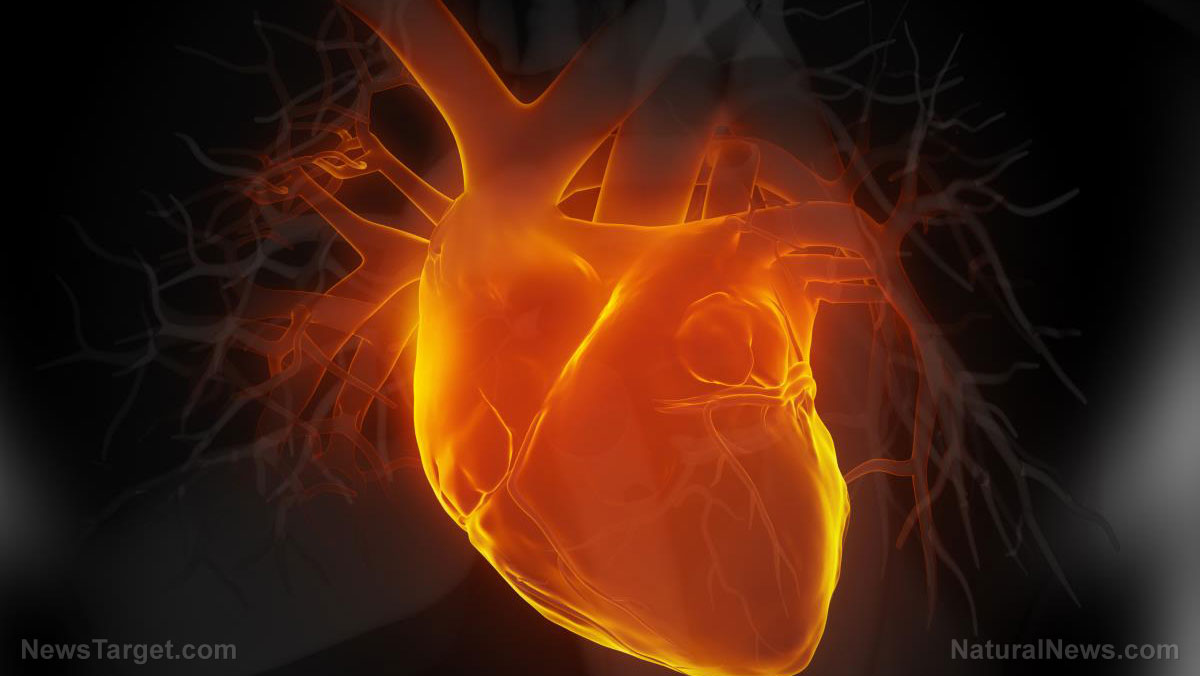Omega-3 supplementation lessens symptoms of depression in people with chronic heart failure
01/02/2019 / By Ellaine Castillo

Omega-3 fatty acids, which are essential for overall health, are now associated with improved symptoms of depression in patients with chronic heart failure. This finding was based on the results of a recent American study published in the Journal of the American College of Cardiology. In this research, the scientists also found a lower incidence of other psychosocial factors such as stress.
Chronic heart failure, also called congestive heart failure, is a condition wherein the heart cannot efficiently pump blood. This occurs as a result of the build-up of excess fats in the arteries, an increase in blood pressure, or irregular heartbeat. Lifestyle is a major contributor to chronic heart failure, and due to the increased prevalence of fast food, stress, and sedentary lifestyle observed in recent years, more people are now suffering from this disease. According to the American Heart Association, approximately 6.5 million adults suffer from chronic heart failure, which is very worrisome since it also increases the risk of other conditions such as kidney or liver damage and depression.
Depression affects more than 20 percent of patients who suffer from chronic heart failure. Its prevalence has been a great cause for concern in recent years, which is why many researchers are focusing their efforts on finding a cure for this condition. One of the most promising treatments for depression in patients with chronic heart failure is omega-3, which is one of the most widely studied nutrients in the world. This fatty acid has two major types, namely eicosapentaenoic acid (EPA), and docosahexaenoic acid (DHA).
Researchers from various institutions in North Carolina, Pennsylvania, and Virginia conducted a clinical study involving 108 participants diagnosed with chronic heart failure and depression. The patients were randomly distributed into three groups corresponding to the treatments that were given to them, which include a combination of EPA and DHA, almost pure EPA, and corn oil placebo. After receiving the treatments for 12 weeks, the participants exhibited significant improvements in their omega-3 levels, depressive symptoms, and other psychosocial factors. Moreover, the researchers found that these effects were dose-dependent since those who were more consistent in taking the omega-3 supplements had better results.
Overall, this study shows that omega-3 has potential use as a natural remedy for depression especially in patients with chronic heart failure. And with further studies, it might even reduce the dependence of people on antidepressant medications. (Related: Omega-3 supplements can help reduce symptoms of depression and might be able to replace SSRIs.)
Other health benefits of omega-3
Even if you’re not suffering from chronic heart failure, you can still enjoy many health benefits from increasing your intake of omega-3 fatty acids. Some of these include the following:
- Omega-3 improves eye health — DHA is one of the components that make up the retina, which is the part of the eye that receives light and transmits it to the brain. By having sufficient intake of this fatty acid, you can reduce your risk of vision impairment and blindness.
- Omega-3 prevents cognitive decline — People who have high levels of omega-3 have more gray matter in their brain. This is great for processing information, memories, and emotions, which are functions that tend to deteriorate over time.
- Omega-3 lowers cancer risk — Omega-3 reduces the risk of cancers of the colon, prostate, and breast. One of the ways through which it achieves this is by fighting of chronic inflammation, a common risk factor for these conditions.
- Omega-3 strengthens the bones — Calcium in the body, which is important for maintaining bone structure and integrity, increases as a result of omega-3 intake. This reduces the risk of diseases like osteoporosis and arthritis.
Food sources of omega-3
Taking supplements is just one way of getting your daily dose of omega-3. Another way is by eating foods rich in this healthy fatty acid, which include the following:
- Seaweed and algae
- Chia seeds
- Walnuts
- Edamame beans
- Kidney beans
- Soybean
For more articles about the benefits of omega-3, visit Nutrients.news.
Sources include:
Tagged Under: chronic heart failure, congestive heart failure, depression symptoms, DHA, docosahexaenoic acid, eicosapentaenoic acid, EPA, fatty acids, fish oils, omega 3, omega-3 fatty acids



















